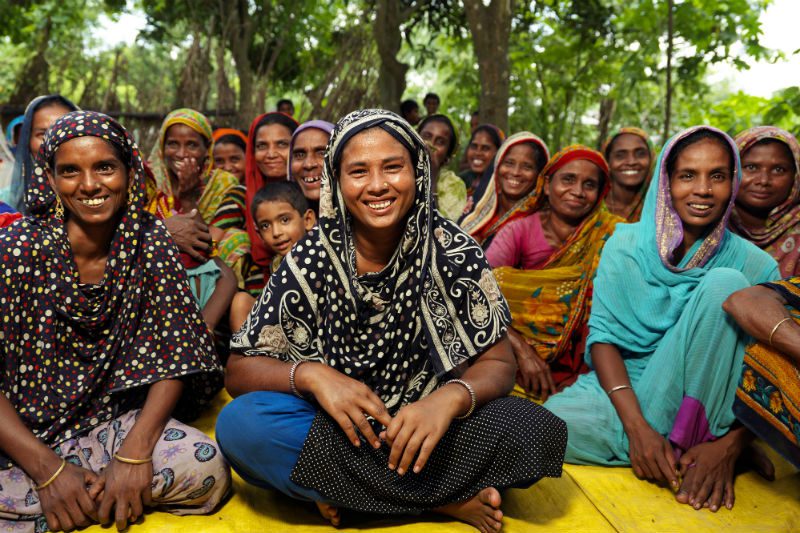
Guest Blogger: Tania Cass, Program Manager – India and Bangladesh
When I first arrived in Bangladesh back in 2007, I was struck by the heat and humidity, pollution, stark poverty evident by large slums, families sleeping in the streets and people begging in the capital city, Dhaka.
At the same time, the greenery of crops, expanse of vast river systems, abundance of colourful rickshaws and the curious friendly nature of the people drew me in. Another thing that occurred to me was the absence of women in the streets, particularly in the more conservative rural areas. In the evening time, as the call to prayer permeates the air, roadside markets are flooded with men, hardly a woman in sight.
The longer I lived in Bangladesh, the more local friends I made. I delved deeper into my work, and began to understand how deeply entrenched patriarchy is in the country and how this impacts on women’s daily lives.
Women have limited access to education, are often forced into early marriage, suffer torture for dowry, have children at a very young age, and their health and nutrition is compromised since women and girls will eat less if there’s not enough food for the family.
Traditionally women’s lives are often limited to caring for the household and they are not involved in public life. Even my educated friends in cities, working and earning their own income, are pressured to get married and give birth to sons, to give up their careers to stay home and raise a family.
Oxfam’s programs challenge the status quo.
They aim to change power relations and give women opportunities, thus improving the lives of the whole family and helping to break the cycle of poverty.
By raising women’s awareness of their rights and how to demand them, encouraging them to develop leadership skills, giving them vocational training and access to credit and resources, women can play a very important role in their communities. Oxfam’s Resilience program does just that.
The income that women are earning through dairy and chilli production, crab fattening and vegetable gardening is spent on feeding their families and sending children to school, giving them a better future. Women’s groups challenge domestic violence in their communities, acting as a vigilance and support group.
Oxfam programs provide services to communities, link them with government services and the private sector and help them to raise their voice to demand their entitlements. This leads to sustainable change and brings women out of the household to play a crucial role in their communities.
I am writing this blog on Bangladesh Independence Day.
During the long and bitter liberation war to gain independence from Pakistan, women stood beside men, fighting for a better future for all. I hope this vision becomes a reality and women and men can both live fulfilling lives free from poverty, violence and discrimination.
The inspiration and dedication for my work comes from my Bangladeshi colleagues, working so hard to make change and from the communities, particularly women who stand so tall and confident as they explain to me how an Oxfam program has transformed their life.
Transform the life of a woman in Bangladesh by supporting women dairy producers
